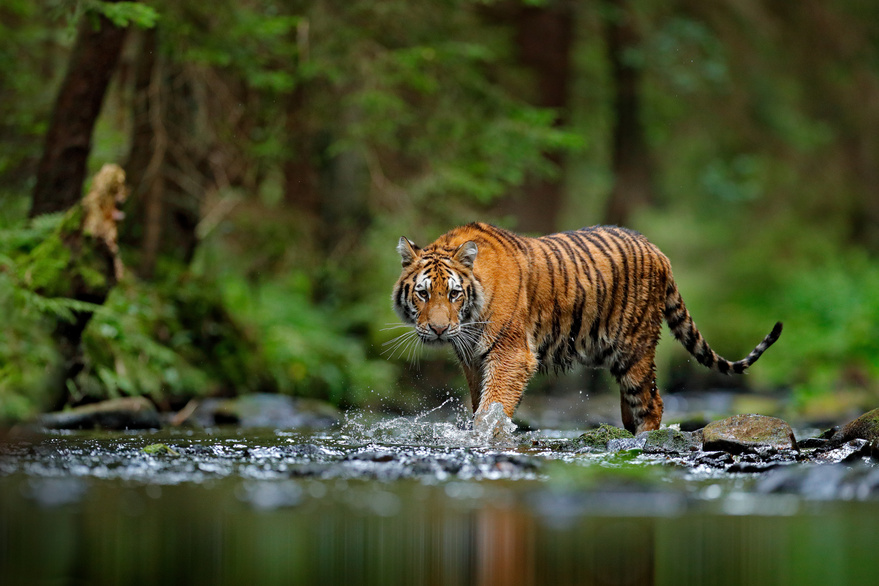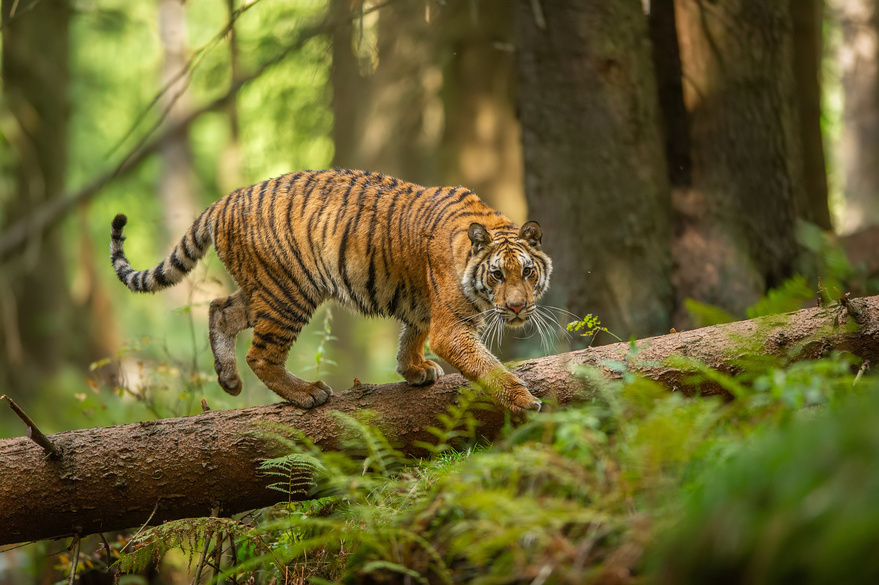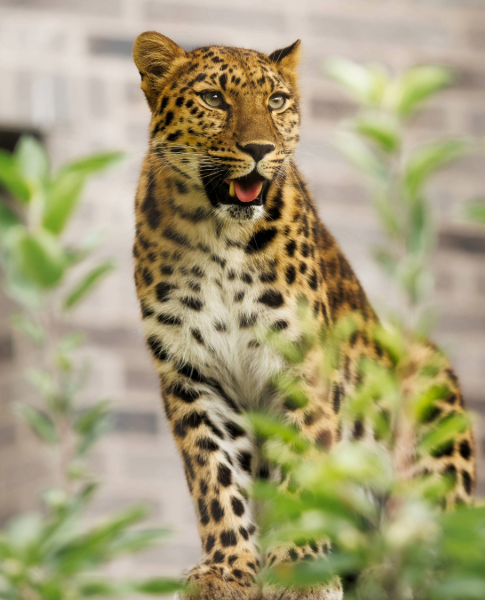Visiting the tiger cubs at Rosebrough Tiger Passage should be a highlight of your summer visit to the Zoo. But as you watch in wonder as they play, it’s important to remember that they are ambassadors for tigers in the wild that are under great danger.

Amur tigers are an endangered species, and Malayan tigers have been deemed critically-endangered by the International Union for Conservation of Nature (IUCN). Both Amur and Malayan tiger species are estimated to have less than 500 animals remaining in their native regions. More than 95% of the wild tiger population has disappeared in the past 100 years.
Habitat loss and conflict with humans are the greatest threats to tigers. People in several countries falsely believe tigers have medicinal or mythical powers so poaching and illegal wildlife trafficking are key threats. Wildlife trafficking is an international crisis that has devastating impacts to both animals and humans.
The Zoo partners with Education for Nature Vietnam (ENV), which works with wildlife protection agencies to gather intelligence, and investigate tiger trade cases and networks. ENV’s National Wildlife Crime Hotline and education awareness campaigns engage the public and help reduce consumer demand for tiger products. Advocacy efforts promote stronger legislation and increased legal protection for tigers.

More locally, your Zoo is also one of hundreds of Association of Zoos and Aquariums facilities that is advocating for the U.S. Congress to pass the Big Cat Public Safety Act. This legislation would strengthen existing federal laws that prohibit the possession of tigers, lions and other species by non-accredited individuals or institutions. Visit www.aza.org/legislative-education-center#/43 to send a letter to your legislator in support of the Big Cat Public Safety Act.
Tigers and big cats everywhere need our help. Indrah, Luka and Anya’s births are important for raising awareness of issues facing tigers in the wild. You can work to secure a future for these species by advocating for their protection and donating to support the work of our partners in the field.



